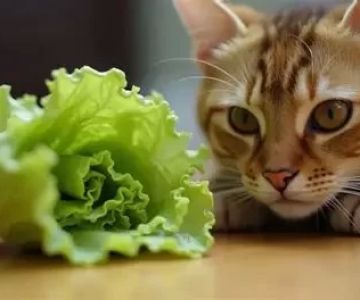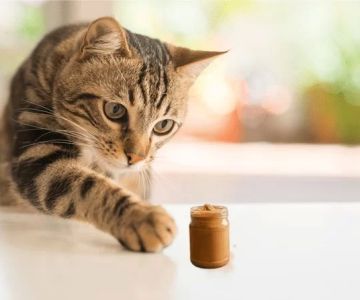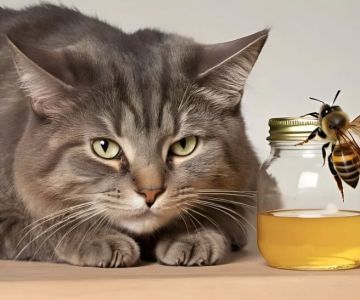- can-cats-eat-ginger - ginger-for-cats
- health-benefits-of-ginger-for-cats - ginger-health-benefits
- risks-of-feeding-ginger-to-cats - risks-of-ginger-for-cats
- how-to-give-ginger-to-cats - how-to-feed-ginger-to-cats
- when-to-visit-the-vet-for-digestive-issues-in-cats - cat-digestive-health
Can Cats Eat Ginger?
Ginger is a popular spice known for its many health benefits in humans, from soothing upset stomachs to reducing inflammation. As a cat owner, you might wonder: can cats eat ginger? The answer is yes, but with caution. While small amounts of ginger can offer some benefits to your cat, there are important considerations to keep in mind before introducing it into their diet.
Health Benefits of Ginger for Cats
Ginger is known for its therapeutic properties, which can benefit cats in certain situations. Here are a few reasons why you might consider giving ginger to your cat in small, controlled amounts:
1. Eases Digestive Issues
Just like in humans, ginger can help soothe your cat’s digestive system. It has natural anti-nausea and anti-inflammatory properties that can help alleviate symptoms of upset stomach, vomiting, or mild nausea. For example, if your cat has recently experienced a bout of vomiting due to motion sickness or has eaten something that didn’t sit well with them, ginger could help ease the discomfort.
2. Reduces Inflammation
Ginger is rich in compounds like gingerol, which have strong anti-inflammatory properties. For cats with arthritis or other inflammatory conditions, ginger can be a natural remedy to help reduce joint pain and swelling. However, it's important to consult with a vet before using it as a treatment for such conditions.
3. Supports Immune Function
The antioxidants in ginger can help support your cat's immune system. This can be particularly beneficial for older cats or those with weakened immune systems. The spice helps fight off harmful free radicals in the body, contributing to overall health and well-being.
Risks of Feeding Ginger to Cats
While ginger has some health benefits, there are also risks associated with feeding it to cats. It's important to understand these risks to make an informed decision about whether or not ginger is suitable for your pet.
1. Upset Stomach
Though ginger can help with nausea, giving your cat too much ginger can actually upset their stomach. It can cause diarrhea, discomfort, or an upset stomach if consumed in excess. Always start with a small amount and monitor your cat for any signs of distress.
2. Interference with Medications
Ginger can interact with certain medications, especially those used to treat blood clotting disorders, diabetes, or high blood pressure. If your cat is on any medication, it's essential to consult with your vet before giving them ginger to ensure that it won’t cause any adverse effects.
3. Not Safe for All Cats
Some cats may be more sensitive to ginger than others. If your cat has a history of digestive issues, food sensitivities, or allergies, ginger may not be the best option for them. Always be cautious and consult with your vet before introducing any new food or supplement into your cat’s diet.
How to Give Ginger to Cats
If you’ve decided to give your cat ginger, it’s important to do so in moderation. Here are some guidelines for safely introducing ginger into your cat’s diet:
1. Start Small
Always begin with a small amount of ginger to see how your cat reacts. A pinch of fresh, grated ginger or a small piece of ginger root should be enough for a cat. Monitor them closely for any signs of discomfort, such as vomiting, diarrhea, or lethargy.
2. Mix It with Food
Ginger can have a strong flavor that some cats may not enjoy. Mixing it with their food, especially something they like, such as canned tuna or a favorite treat, can help them accept the taste.
3. Use Ginger Products Made for Pets
For convenience and safety, you can also consider ginger supplements or treats that are specifically formulated for pets. These products are often designed with safe dosages and include other beneficial ingredients for digestive health.
When to Visit the Vet for Digestive Issues in Cats
While ginger can be a helpful natural remedy for minor digestive issues, it’s important to know when it’s time to consult a veterinarian. If your cat is experiencing persistent vomiting, diarrhea, or a loss of appetite, it may be a sign of a more serious underlying condition that requires medical attention.
- Vomiting or diarrhea that lasts for more than 24-48 hours.
- Loss of appetite or significant weight loss.
- Signs of dehydration, such as lethargy or dry gums.
- Any unusual behavior, such as excessive drooling or difficulty breathing.
At Hidden Brook Veterinary, we specialize in providing expert care for your pets. If you’re unsure about using ginger or any other supplement for your cat, our veterinary team can help you make the best decision for your cat’s health and well-being.











